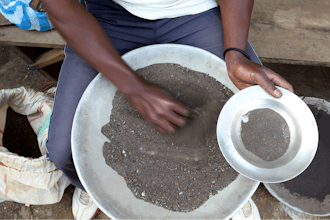BEIJING (AP) -- China's steel industry group has rejected iron ore prices negotiated by Australian mining giant Rio Tinto with Japanese and South Korean mills, setting up a possible clash with suppliers.
The weekend announcement by the China Iron and Steel Association breaks with an industry tradition of treating the first agreement in annual talks on ore prices as the benchmark for other Asian customers.
Rio Tinto Ltd., the world's third-largest miner, agreed with Japan's Nippon Steel Corp. last week to cut iron ore prices by about one-third.
But the Chinese group, whose 119 members represent 90 percent of output in China, the world's biggest steel producer, said Sunday the Rio-Nippon Steel agreement failed to reflect market conditions and would "result in overall losses among China's steelmakers."
The group did not say what price it wants, but industry analysts said earlier the Chinese buyers wanted a 40 percent reduction for the buying year that begins June 30.
The Chinese group took the lead in price negotiations this year, replacing Baoshan Iron & Steel Ltd., China's biggest mill. Other major ore suppliers are Brazil's Companhia Vale do Rio Doce SA and Australia's BHP Billiton Ltd.
Despite China's clout as a major buyer, its hardline stance is unlikely to produce a big price cut, said Linda Lin, an analyst in Shanghai for Metal Bulletin, an industry information provider. She said economic recovery will drive demand for steel and its producers might press their negotiator to reach an agreement quickly.
"Suppliers certainly don't want to lose China's big market, and it's also impossible for China to get other stable suppliers with high-quality products," said Lin. "A failure of the negotiations also certainly is not something the Chinese side would like to see."
Associated Press researcher Bonnie Cao in Beijing contributed to this report.






















